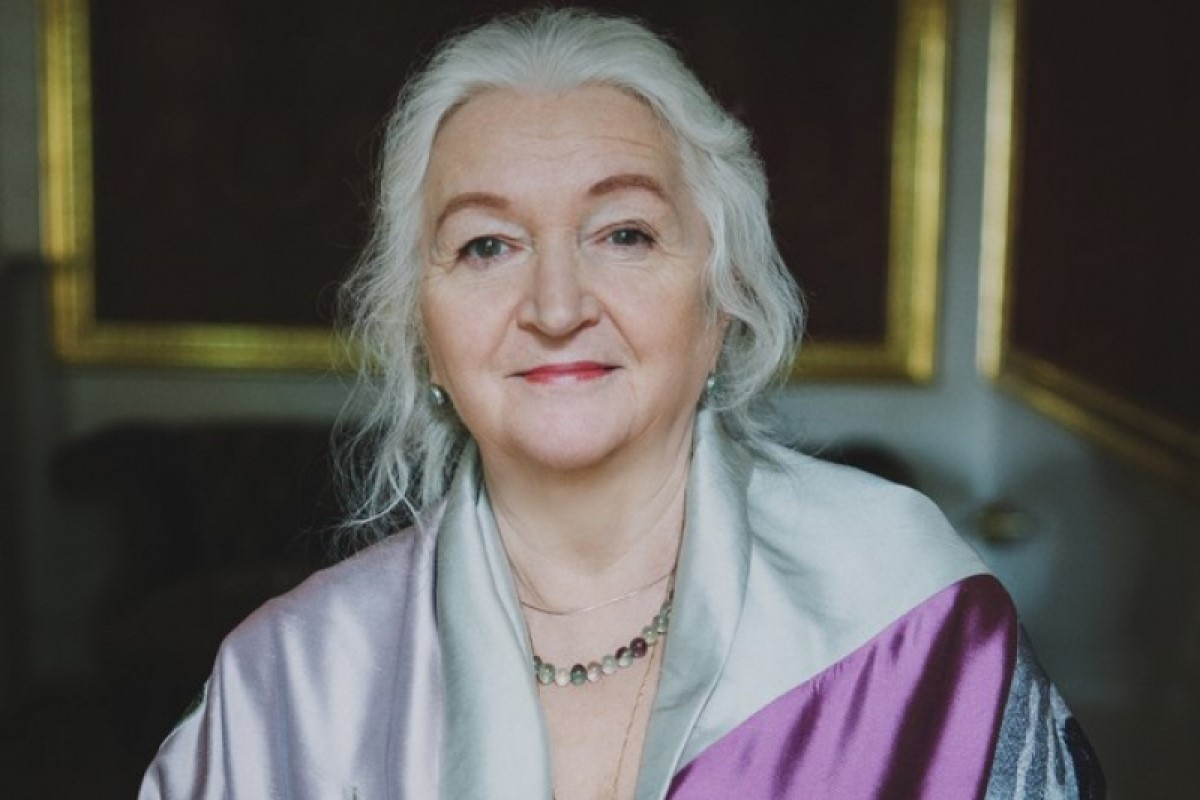Tatiana Chernigovskaya: ‘The man of the 21st century is Homo Confusus’
Professor Tatiana Chernigovskaya, Director of the Institute for Cognitive Studies at St Petersburg University, Corresponding Member of the Russian Academy of Education, and Eugene Vodolazkin, a literary scholar and writer, have discussed: how freedom is understood in today's world; whether people can combine critical and religious thinking; and why the sphere of the spiritual is important to them.

Tatiana Chernigovskaya noted that humankind has been developing moral coordinates over thousands of years of cultural evolution. Although they may differ to some extent in different cultures, the basic milestones are roughly the same everywhere. People have created a universal formula: ‘Do not do to others what you do not wish for yourself’. But the current cult of freedom, which is paradoxically combined with the rejection of other views that are different from those generally accepted, is challenging human civilisation.
'In my opinion, any cult is a terrible thing. To my mind, humankind is just sick, it is lost. We know the concepts of "homo sapiens", "homo lectius", but what is today's man? I am sure it is a "homo confusus",' shared Tatiana Chernigovskaya. 'Man is lost and does not know where they are: what kind of civilization this is and what the basic reference points in this world are. Most people are not just unable to list the Ten Commandments, they don't even know about them at all. Instead, there is a conversation about freedoms going on.'
Another difficult question for modern man is how to combine critical thinking and faith. According to St Petersburg University Professor Chernigovskaya, not all scientific hypotheses can be tested and proven experimentally so far, and even the development of technology will not help to find answers to some questions. One such difficult field of study is cognitive science: the study of neurons and their connections. Even if it is very detailed, it will not bring scientists any closer to understanding the principles of the work of the brain. Other approaches are needed for that.
Tatiana Chernigovskaya also noted that many of the major internationally acclaimed scientists were not atheists. In 'On the Origin of Species' Charles Darwin did not write that man evolved from an ape. On the contrary, as a man who received a religious education, he noted that he was happy to be a descendant of those first creatures that God had created.
That fact that we are all related on this planet is indisputable, and I don't think it contradicts the religious point of reference.
Professor Tatiana Chernigovskaya, Director of the Institute for Cognitive Studies at St Petersburg University, Corresponding Member of the Russian Academy of Education
'Aren't you astounded by the very fact that there is an alphabet of life: the four letters of DNA with which the books of both the tiny amoeba and the human being are written? It's a miracle. Out of love for paradoxes, I ask myself questions: do these four letters apply to the entire universe? Is the code of life the same everywhere or are there an infinite number of these texts? Another question arises from this: everyone is looking for life outside the Earth, but are we sure we can recognise it?' stressed Professor Chernigovskaya.
Following up on the theme of spirituality, Tatiana Chernigovskaya, Director of the Institute for Cognitive Studies of St Petersburg University, noted the ability of the human brain to perceive the influence of things that lie far beyond the world of physical objects which can be touched or heard. 'Despite what is written in any textbook, our brain is not engaged only in processing the information that it receives. It is engaged in creating different worlds. But I would rather say that a human being is a creature that creates worlds and lives in them,' said Tatiana Chernigovskaya. 'It is not yet known which world has a greater influence on us – the material one or the one we created. Otherwise, why do books, music, and art have such an impact on us? Why do we cry over books? Why does a great film sweep us off our feet? It's a spiritual thing. It's just the way we are. I suspect our neighbours on the planet don't have this quality, and not just because they have small or underdeveloped brains. But we're so crazy that it's the spiritual realm we've decided to destroy.'
At the end of the talk, Professor Chernigovskaya added that building a personal story is the most difficult task. This is because improving oneself even a little bit is very hard work. 'I think it is worth having this kind of conversation with children. The other question is how to do it. You can't talk to them only about toys, because even young children at the age of four or five are already starting to ask about the end and even more challenging questions. You can evade answering them, but perhaps the “you'll find it out when you grow up” position is wrong. There is something they should know earlier and then they will have a different life and we will have better prospects,' summed up Tatiana Chernigovskaya.

